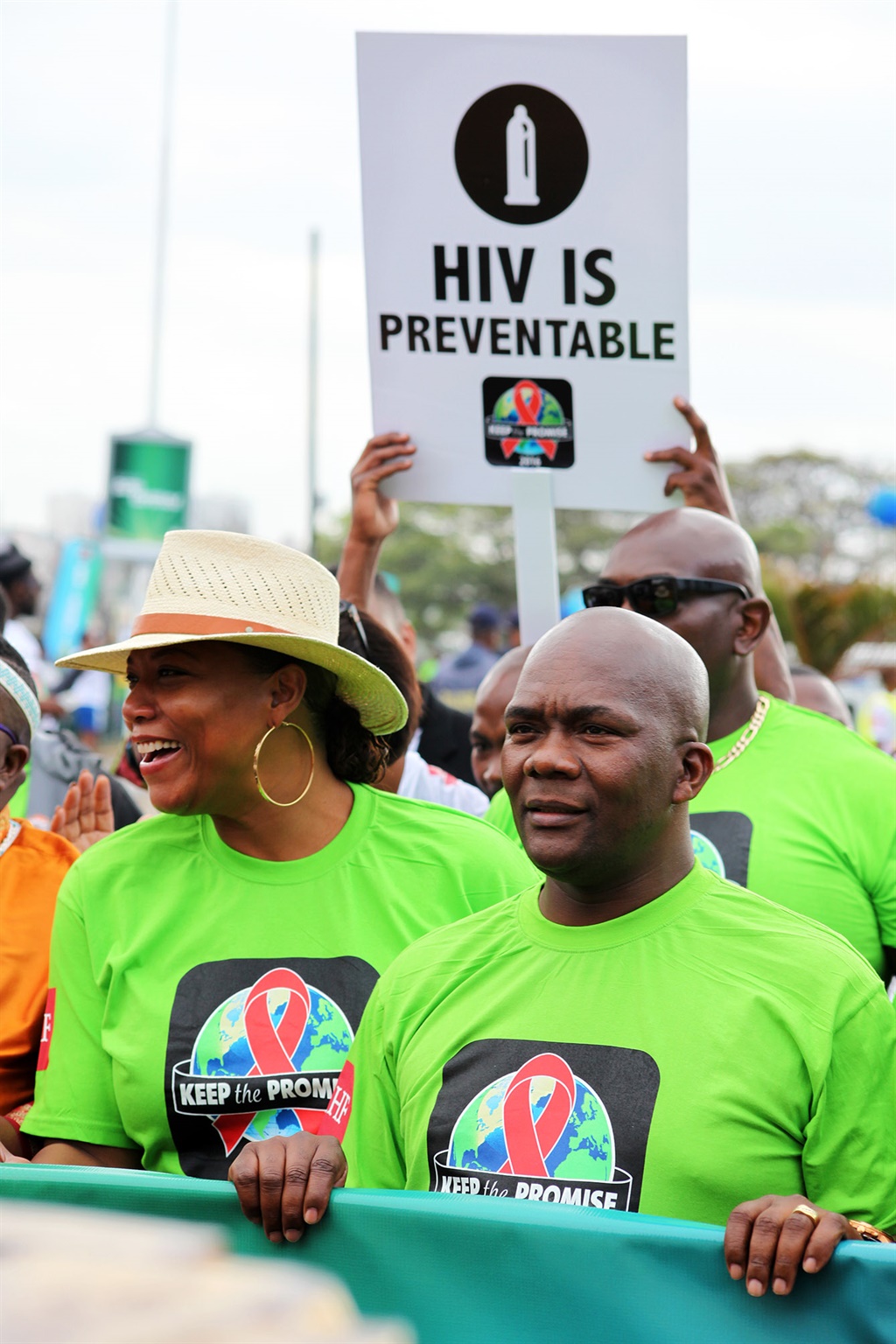
Various international role players will discuss research findings and knowledge in an effort to eliminate HIV/Aids by 2030
No matter how much effort is put into the fight against the HIV/Aids pandemic, the virus keeps outsmarting scientists by constantly evolving – which has prevented them from finding a cure for more than three decades.
Nearly 20 000 delegates from 180 countries are expected to attend the 21st International Aids Conference from today to Friday at the Durban International Convention Centre to deliberate on strategies to fight the scourge that has decimated poor nations, particularly African countries.
With the exception of a few vaccines, including HVTN 100, which was tested in South Africa, a number of them targeted at eliminating the HI virus have failed.
The vaccine being tested locally is based on the Thai trial that delivered landmark results in 2009. This vaccine (RV144) showed that it could protect against HIV infection by up to 31% when tested in Thailand.
While research into an HIV vaccine and cure will be topical at the conference, issues around HIV prevention and treatment will still dominate the proceedings as they are vital in attaining the envisaged Aids-free generation by 2030.
Researchers will share knowledge and research findings on how this can be done.
Every year, the International Aids Conference has a dedicated theme – this year’s is Access Equity Rights Now.
It is a call to action to work together and reach the people who still lack access to comprehensive treatment, prevention, care and support services.
South Africa, in particular, will focus on campaigns targeted at young people (aged 15 to 24) as they are used as a good measurement of whether HIV-prevention messages are filtering through.
Local researchers will outline what seems to be working and how they can improve on current initiatives.
Dr Fareed Abdullah, CEO of the SA National Aids Council, last week revealed that the country was still battling with new HIV infections, especially among young people.
He said while the rate of new HIV infections had come down over the years, it still remained very high by global standards.
In 2004, there were 500 000 new infections in South Africa, and that figure decreased to 330 000 in 2014.
“Among young women aged 15 to 24, the incidence rate [new infections] was estimated at 2.83%. This means that if you have 100 young women, three will become HIV-positive within a year, and that is considered to be very high,” he said.
Abdullah said more needed to be done to ensure young people did not get infected.
Yogan Pillay, deputy director-general of the department of health, also expressed concern about the unrelenting infection rates, saying government was doing something about this.
“The government’s investment in young people in this country is very significant. The challenge, however, is [that] these initiatives are not joined.
What we need to do is figure out how to make them much more efficient. One way of doing that is to join up all these initiatives,” he said.
For example, said Pillay, “if you have a school with highly vulnerable children who are falling pregnant, how do you connect them to the nearest health facility [before they fall pregnant] to ensure they get access to contraceptives.
Or get contraceptives to them?
“If there’s a large employer in that area who is employing the parents of these children, we need to ensure that the employers are involved in the lives of these children, because they are potentially future employers of these children,” he said.
South Africa is not the only country that will focus on young people at the Aids conference.
Kenya and other international organisations, including the International Women’s Health Coalition and UNAids, will participate in a symposium on Tuesday under the theme Turning the Tide for Adolescent Girls and Young Women: How Realising Gender Equality and Securing Women’s Human Rights are Essential for Reaching the End of Aids.
According to new data from UNAids, adolescent girls and young women account for one in five new infections globally.
This means that, in spite of significant advances the world has made in reducing HIV, adolescent girls and young women – particularly in sub-Saharan Africa – have been left behind.
In some countries in southern and eastern Africa, HIV prevalence among girls and young women is as much as seven times higher than it is among boys and young men.
Gender inequality, violence and poverty make adolescent girls and young women particularly vulnerable to HIV, and those living with HIV face heightened discrimination and violence.
Françoise Girard, president of the International Women’s Health Coalition, said: “If we are serious about ending Aids, some things have to change.
“We need to tackle gender inequality, realise women’s rights, and finally put adolescent girls and young women at the centre of our efforts. Their future will be determined by how we act now,” Girard said.
Meanwhile, Thailand and Belarus will also take centre stage at the conference as the world applauds these countries for the elimination of HIV transmission from mother to child.
Thailand is the first country in Asia to eliminate mother-to-child transmission of HIV and syphilis.
Eliminating mother-to-child transmission of HIV and syphilis is key to the global effort to combat sexually transmitted infections and to eliminate Aids completely by 2030




 Publications
Publications
 Partners
Partners








